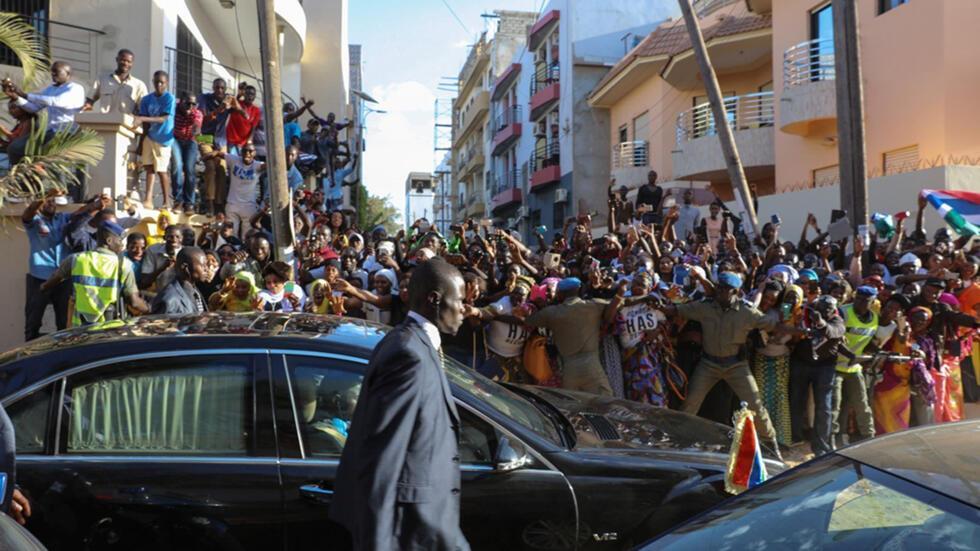By Modou Jallow, US
Africa-Press – Gambia. When the FPAC–PEC report traced the $30 million petroleum mystery, it discovered something bigger than missing invoices or tank balances. It found a web of foreign companies, registered abroad, unlicensed in The Gambia, quietly running the nation’s fuel economy.
At the centre of that web: Apogee FZC (Dubai), Creed Energy Ltd (London), and Ultimate Beige Logistics (Ghana).
None of the Oil Marketing Companies (OMCs) is registered in The Gambia. None appear in the PURA licensing database. Yet between 2022 and 2023, they dominated the supply chain through Gam Petroleum.
The foreign trio
Apogee FZC — Dubai’s shadow trader
Registered in the United Arab Emirates, Apogee FZC entered the Gambian market through a loophole labelled “re-export storage.”
It brought diesel cargoes “for onward export” but sold them locally to OMCs, bypassing regular import duties.
The inquiry linked Apogee to at least five cargoes, worth over USD 55 million, handled through Gam Petroleum tanks.
Payments were processed through Access Bank Gambia, where the Committee found SWIFT transfers matching fuel quantities offloaded at Mandinari.
No Pura licence, no GRA registration, no corporate tax file.
One line in the Committee’s report captures it best:
“Apogee FZC traded petroleum products within The Gambia without regulatory authorisation, taxation, or physical verification by customs.”
Creed Energy Ltd — the London broker
Creed Energy appears on several bill-of-lading and correspondence chains as the “trading partner” to Apogee FZC.
Registered in the UK as a commodity broker, Creed positioned itself as a “financier and off taker,” arranging cargoes through Apogee’s Dubai office and receiving payment through offshore accounts.
The Committee found that in at least two documented shipments, fuel consigned to Creed was later sold locally through intermediaries, but no records show any Gambian taxes paid.
Creed’s London address corresponds to a virtual office, not a physical trading floor.
When asked whether Creed had a Gambian business registration, neither PURA, GRA, nor the Registrar of Companies could produce one.
Ultimate Beige Logistics — Ghana’s silent partner
Ultimate Beige Logistics Ltd, incorporated in Accra, emerged as a key “lifting partner” in 2023.
Gam Petroleum storage logs showed multiple releases labelled UBL, but no corresponding licence or tax record existed.
The company’s name surfaced in communications between the depot’s operations team and an official in the Ministry of Petroleum, requesting “expedited clearance for urgent re-exports.”
The FPAC–PEC inquiry determined that these “re-exports” were fictitious; the fuel never left Gambian borders.*
How the web worked
Foreign trader brings in fuel under a “re-export” arrangement (tax-exempt).
Fuel stored at Gam Petroleum tanks.
Instead of exporting, the trader sells to local OMCs, often in cash or informal transfers.
OMCs distribute the fuel locally, and the state loses import duties and excise taxes.
The committee estimated that millions of dalasis in potential revenue were lost through this cycle every quarter.
They called it “a parallel petroleum market”, running alongside the official one, but invisible to government books.
The Access Bank connection
Access Bank Gambia’s records became crucial to the inquiry.
Investigators found that nearly all foremost transactions related to Apogee FZC, Creed Energy, and Ultimate Beige passed through Access Bank accounts.
Transfers often referenced vague terms like “fuel storage fees”, “operational uplift”, or “re-export settlement”, without tax withholdings or Pura clearance letters.
The Committee demanded that Access Bank furnish full transaction details to the Central Bank and Financial Intelligence Unit for review, warning that “commercial banks must not become conduits for unlicensed trading.”
Who should have stopped it?
• Pura: Licensed neither the traders nor the transactions.
• GRA: Failed to monitor “temporary imports” under the re-export scheme.
• Gam Petroleum: Let unlicensed foreign entities control its tanks.
• MOPE: Issued the original policy directive that opened the door.
In other words, every guard left the gate unlocked.
Key Findings from FPAC–PEC
• Gam Petroleum’s management “collaborated or negligently enabled” unlicensed operations.
• Pura “failed in its statutory oversight” of storage and trading.
• GRA “lost significant customs revenue” through tax-free local sales.
• The Ministry’s re-export policy “should be rescinded immediately.”
• All foreign traders involved “should be banned pending full tax assessment.”
What this means for citizens
Every dalasi lost here could have funded fuel subsidies, hospital ambulances, or school transport.
Instead, offshore traders made untaxed profits, while Gambians paid record-high pump prices.
The report is not just about corporate misconduct; it’s about a broken chain of accountability that allowed foreign interests to capture a national asset.
When you next see a fuel tanker at the depot or a sudden pump-price hike, remember that the receipts may be in Dubai, not Banjul.
What FPAC & PEC recommend
Immediate forensic audit of Apogee FZC, Creed Energy, and Ultimate Beige Logistics transactions through Access Bank.
Suspension of all re-export licences until a new regulatory framework is drafted.
Mandatory real-time customs and PURA monitoring at Gam Petroleum.
Criminal and civil action against any official facilitating or ignoring illegal trading.
The moral bottom line
Foreign traders didn’t just siphon fuel; they siphoned sovereignty.
They turned The Gambia’s fuel tanks into private cash machines, with the help of silence, loopholes, and neglect.
Accountability must now move from committee paper to courtroom reality.
Until every dalasi is traced and every name is held to account, Gambians will keep paying the price, incur higher fuel costs, have more profound deficits, and lose trust.
Source: The Standard Newspaper | Gambia
For More News And Analysis About Gambia Follow Africa-Press






